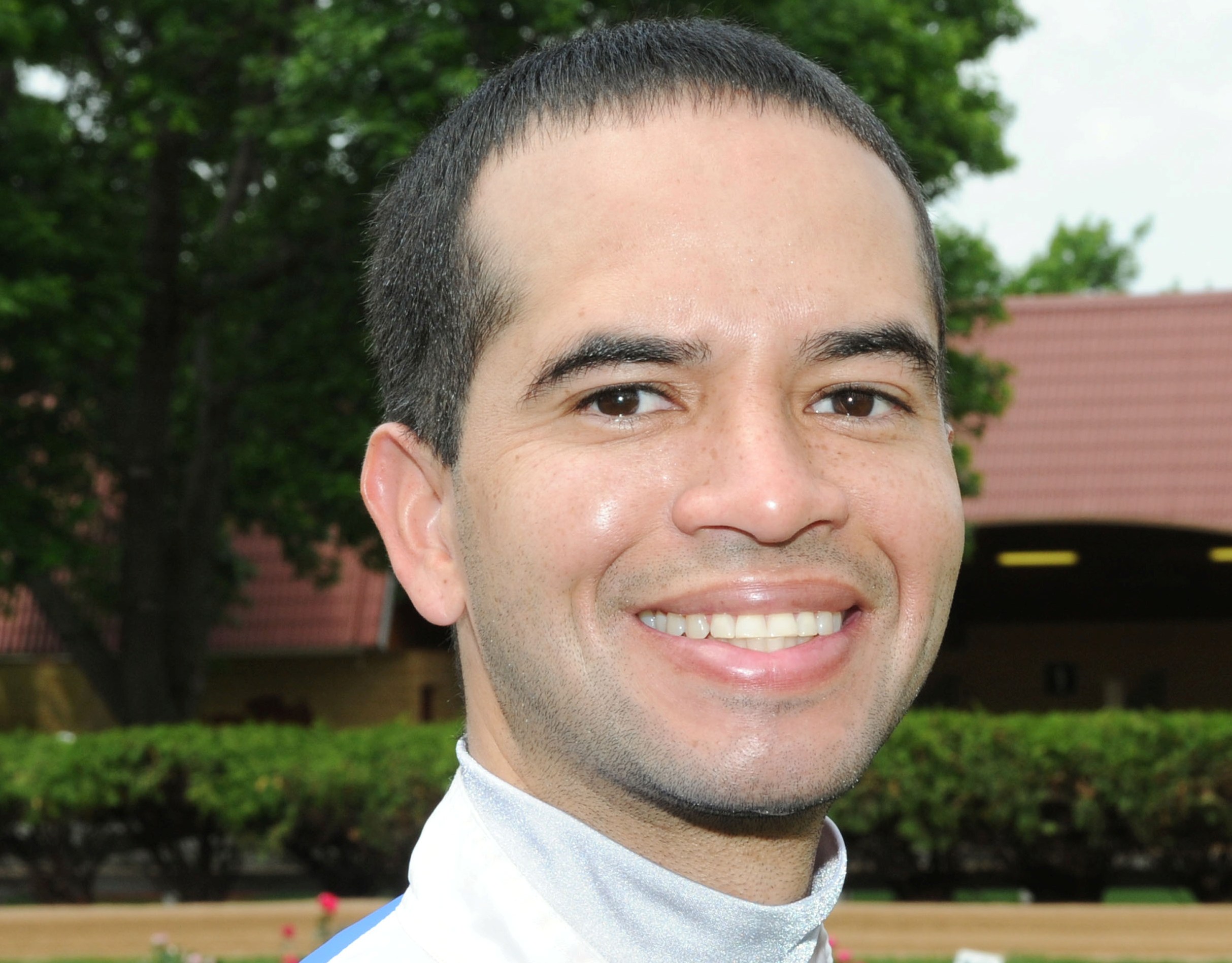
Organizers met Thursday afternoon for a planning session on the Leg Up Fund being established at Canterbury Park to benefit jockeys sidelined by racing injuries.
Unlike many other sports, riders have only limited benefits during convalescence from injuries and are pretty much on their own. Unlike many other sports, jockeys don’t get paid if they are unable to compete.
The Don MacBeth Memorial Jockey Fund, which benefited injured riders nationwide for 25 years, was disbanded in December of 2011 because of a downturn in the economy and the loss of original leaders due to death or retirement.
The Leg Up Fund was conceived to help fill some of the gap left by the defunct MacBeth fund and is intended to benefit riders on an interim basis after injury.
Canterbury racing fans and horsemen were reminded early Thursday evening of the inherent dangers in the sport when a horse turned fractious in the paddock walking ring and injured rider Juan Rivera as well as an elderly groom before being subdued by an outrider.
Alex Canchari, the track’s leading rider, replaced Rivera on the mount and escaped serious injury himself later in the card when he was dropped by the horse he was riding in a turf race.
Nonetheless, Canchari was quite sore from the fall on Friday, sore enough that his agent, Chuck Costanzo, encouraged him to skip morning workouts.
The dangers of riding, racing and caring for quarter horses and thoroughbreds are present on a daily basis. Injuries are far more common than generally known, even serious ones.
Tad Leggett, a four-time quarter horse champion at Canterbury, was paralyzed a few years ago in a riding accident at another racetrack. Anne Von Rosen, who rode quarter horses and thoroughbreds at Canterbury Park, was paralyzed in a riding accident at Turf Paradise in Phoenix last spring.
The medical bills associated with such injuries are prohibitive. Many riders wind up near destitute after incurring those costs on top of normal living expenses.
Rivera, as an example, injured both knees in the incident Thursday night. He was stiff, sore and walking gingerly on Friday.
X-rays revealed no broken bones Thursday night but “I got up this morning and both of my knees and the side of my leg hurt,” Rivera said. “I was walking pretty slow.”
He had other concerns as well. Although he is hopeful of riding again by Sunday, he has lost some of the better mounts he has gotten this summer because of the injury Thursday. “I had about 12 pretty good ones this weekend,” he said. “We’ll just have to see how I feel by Sunday.”
If Rivera hasn’t healed enough to ride by Sunday, his doctor told him he will schedule an MRI.
An injury of any duration can create another concern for a rider. “You might have first call for a big barn,,” said Mark Anderson, a former jockey who took over this year as clerk of scales and jockey room custodian. “Sometimes you have to work your way back into position after you heal.”
In the meantime, riders try to help one another during a time of crisis. “They’ll put a sheet up in the room and pledge one, two or three mount fees to someone who’s injured,” Anderson added. “Some of them will simply pledge a dollar amount.”
Anderson, for instance, was injured in Nebraska in 2000. “I fractured my wrist and was sidelined four months,” he recalled.
Not only did the local riders try to help out. “I recall that Canterbury riders had a sheet up for me at the same time,” he said.
There was a sheet up at Canterbury after Mark Luark suffered a knee injury a few weeks ago that is expected to sideline him for nine months.
Meanwhile, Rivera hopes to be back in the saddle on Sunday.
“I hope so,” he said. “I have some good mounts. If I can’t ride I am going to schedule another appointment.”
Riders often continue to compete or ignore pain that needs attention for fear of losing paychecks.
A medic assigned to Canterbury Park during the racing season put it this way on Thursday night:
“I sometimes will get people on the outside, generally older ones, who want to see a doctor for every little scratch and I have to tell them that they don’t need a doctor.”
It is entirely different with riders. “They’ll say they’re fine when they can hardly walk or say they’re fine when they need attention,” she said. “I have to talk them into seeking attention.”